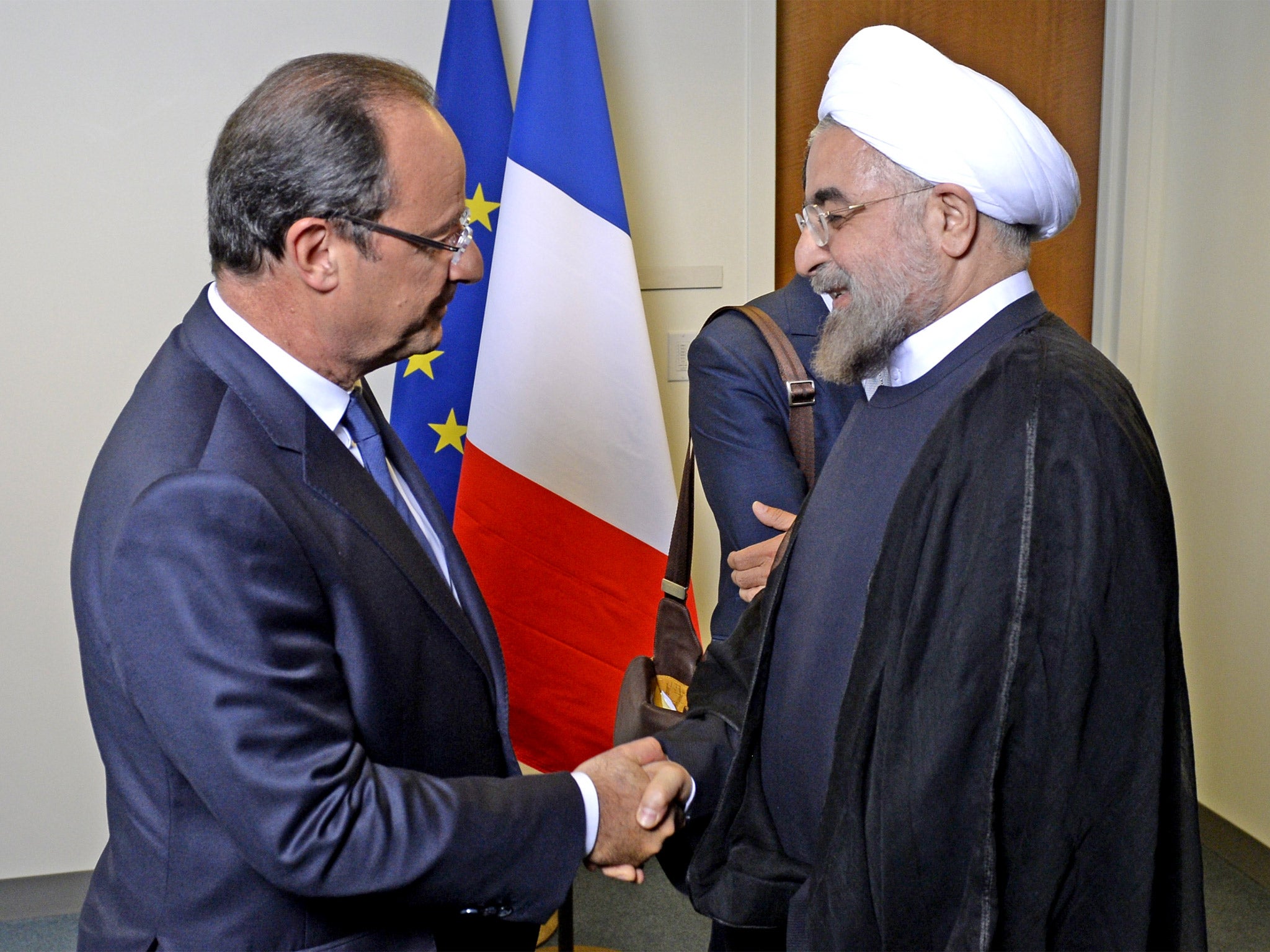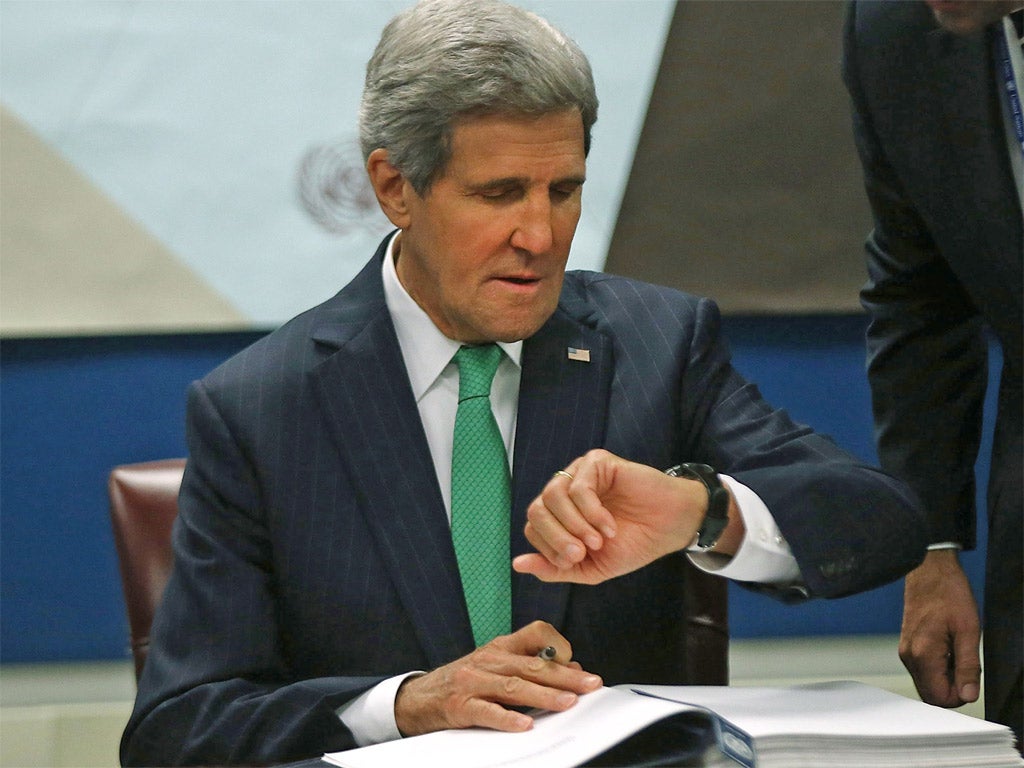Iran wants nuclear deal in three-to-six months, reveals President Hassan Rouhani
Iranian President says he wishes to finalise a resolution on Tehran’s nuclear programme within ‘months not years’

Your support helps us to tell the story
From reproductive rights to climate change to Big Tech, The Independent is on the ground when the story is developing. Whether it's investigating the financials of Elon Musk's pro-Trump PAC or producing our latest documentary, 'The A Word', which shines a light on the American women fighting for reproductive rights, we know how important it is to parse out the facts from the messaging.
At such a critical moment in US history, we need reporters on the ground. Your donation allows us to keep sending journalists to speak to both sides of the story.
The Independent is trusted by Americans across the entire political spectrum. And unlike many other quality news outlets, we choose not to lock Americans out of our reporting and analysis with paywalls. We believe quality journalism should be available to everyone, paid for by those who can afford it.
Your support makes all the difference.Ahead of meeting with the P5+1 group of world powers to discuss Tehran’s uranium enrichment programme, President Hassan Rouhani has said that his country ideally wants a nuclear resolution within three-to-six months.
Iran’s Foreign Minister Mohammad Javad Zariff has a meeting scheduled in New York today to meet US Secretary of State John Kerry as well as diplomats from the UK, France, Russia, Germany and China.
Speaking to the Washington Post, President Rouhani said he was in control of settling the nuclear affair and that he had delegated the task to his Foreign Minister.
Though Mr Rouhani is president, his position of power remains subordinate to Iran’s Supreme Leader, Ayatollah Ali Khamenei.
Mr Rouhani told the Washington Post that his government had been “fully empowered” by the Supreme Leader to “finalise nuclear talks”, saying that the country intended to create “full transparency” on the issue.
Asked about other bilateral issues such as the reopening of embassies, the Iranian president said: “Everything is possible after the [nuclear] settlement”.
When prompted on Iran’s position on Syria and the possibility of participating in a second Geneva conference Mr Rouhani also sounded an optimistic note.
He said the country would consider "cooperation at the international level" to help settle the Syria crisis, ending the civil war there and to insure the right of self-determination of the Syrian people.
He added: “We would enter in any talks or meetings including Geneva 2 as long as there are no preconditions for Iran’s participation.”
The Iranian economy has been badly hit by sanctions imposed by the UN and the West over fears of the Middle Eastern country’s nuclear intentions – a complaint Mr Rouhani raised during his speech to the UN earlier this week.

Mr Rouhani, who is considered a more moderate and less confrontational leader than predecessor Mahmoud Ahmadinejad, surprised some earlier this week when he allegedly turned down a meeting with President Barack Obama at the UN’s annual Conference in New York.
In his address to the UN, Mr Obama alluded to written correspondence he had established with the Iranian President, while The White House said that “ball was firmly in Iran’s court” with regards to a meeting between the two leaders.

Asked by the Washington Post what he would have been if he had met Mr Obama, the Iranian president said: “ if it had happened we would have talked about opportunities and hopes for the future.”
Though diplomatic relations look warmer than usual between the two countries, the US Justice Department has not reneged on its bid to seize a New York skyscraper apparently owned by the Iranian government.
Join our commenting forum
Join thought-provoking conversations, follow other Independent readers and see their replies
Comments